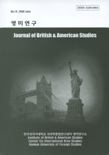ADVERSITY PASSIVES OF ENGLISH ERGATIVE CONSTRUCTIONS BY EAST ASIAN EFL LEARNERS: Pragmatic and Morphosyntactic Transfer of L1
ADVERSITY PASSIVES OF ENGLISH ERGATIVE CONSTRUCTIONS BY EAST ASIAN EFL LEARNERS: Pragmatic and Morphosyntactic Transfer of L1
- 한국외국어대학교 영미연구소
- 영미연구
- 제14집
-
2006.06139 - 167 (29 pages)
- 21

This paper analyzes the East Asian (Chinese, Japanese, Korean) EFL learners’ overpassivization (OP) of the English ergative constructions (as in 1a) and transitivization of related intransitive verbs (as in 1b): 1 a. *What was happened yesterday? b. *He disappeared himself. Most EFL studies of individual languages (e.g., Masuko on Japanese; Chung on Korean) attribute the source of the errors mainly to the pragmatic factor, so called ADVERSITY PASSIVE. However, a close cross-linguistic investigation has shown that only the OP of event verbs is due to the adverse feelings common to the East Asian culture and that other types of OP and strange transitivization depend on L1-specific adverse feelings and whether intransitive verbs of concern can passivize in the L1.
1. Introduction<BR>2. Model of East Asian EFL Learners’ Overpassivization of EEC<BR>3. Adversity Passives (APs)<BR>4. Residue of Adversity Passives: Strange Transitives in C and J<BR>5. Conclusion<BR>Works Cited<BR>Abstract<BR>
(0)
(0)